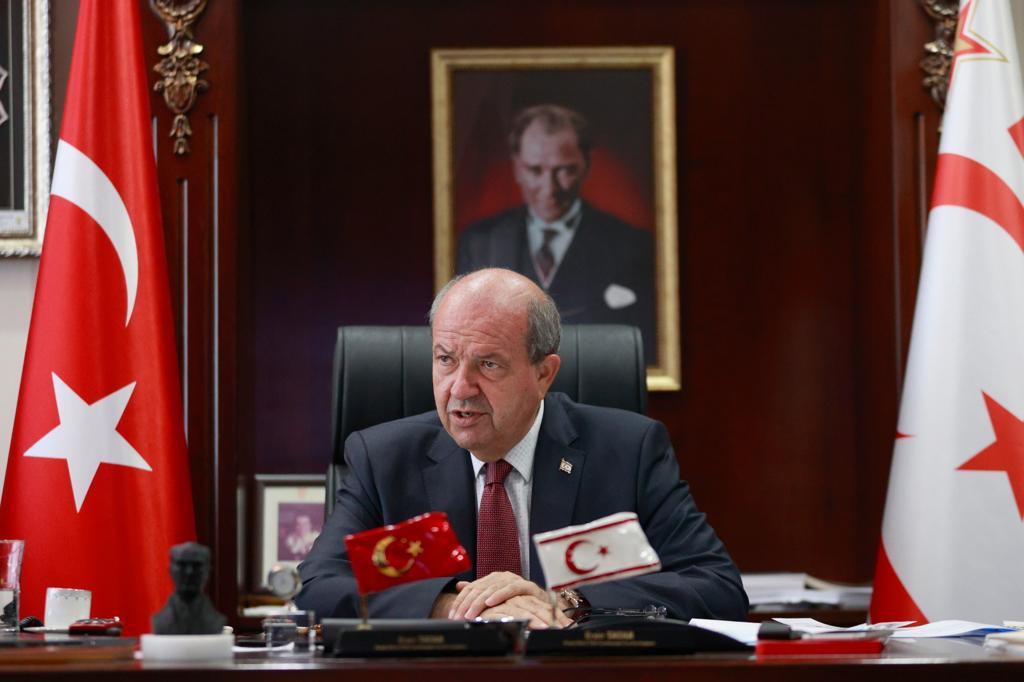
President Ersin Tatar on Monday decried the United Nations Security Council Resolution 186 on the anniversary of its passage.
The resolution, which passed through the Security Council on March 4, 1964, created the UN’s Peacekeeping Force in Cyprus (UNFICYP), but also made reference to the “Government of Cyprus”, which had already been rid of its constitutionally mandated Turkish Cypriot members since the previous year.
He said that UN resolution 186 was the biggest obstacle to a solution in Cyprus.
Tatar spoke of how Turkish Cypriots were “massacred and forced to migrate under Greek Cypriot attacks” which began with the Bloody Christmas in 1963, and that “the Republic of Cyprus, of which the Turkish Cypriot people were equal founding partners, was turned into a Greek Cypriot state by armed force”.
He said, “the 1960 Republic of Cyprus turned into a Greek Cypriot state with this unfair and politically motivated decision and became ‘Cyprus’. It is still recognised as the only legitimate government.
“While the Greek Cypriot side gains strength from this decision and is allowed a comfort zone, it continues its intransigence and can play for time [in negotiations],” he added.
“Strengthened by this decision, the Greek Cypriot side ignores all the rights and the sovereignty of the Turkish Cypriot people and proposes we become a minority, and tries to remove Türkiye and Turkish soldiers from Cyprus by imposing ‘UN parameters’, a ‘federal solution’, and the mantra of ‘zero soldiers, zero guarantees’.
“I state once again that we will never bow to these impositions, we will never give up our state, our sovereignty, or the Turkish soldiers as our motherland Türkiye’s guarantee,” he said.
The Greek Cypriots, he added, have maintained a “mentality of domination and an uncompromising attitude” ever since.
“As long as this decision remains in place, the Greek Cypriot side will not approach any agreement,” he added.
He pointed to the failures of the Annan plan and Crans Montana as evidence of this and said that it was for this reason that he had decided to advocate for a two-state solution to the Cyprus problem.
He added that such a solution “will benefit Cyprus and the region,” and that “only on this basis can new and formal negotiations begin.”